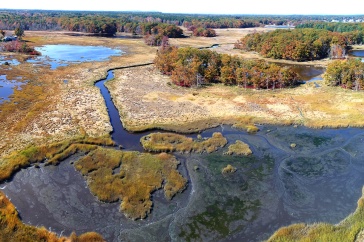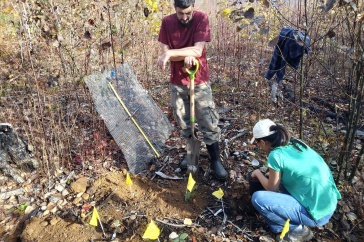
UNH research professor Changsheng Li of the Institute for the Study of Earth, Oceans, and Space (EOS) passed away on Sunday, October 18, 2015 at Massachusetts General Hospital in Boston. Li, 74, had been battling cancer for several months.
A research professor at the EOS Earth Systems Research Center since 1992, Li’s life work was building a one-of-a-kind mathematical ecosystem model that simulates the soil biogeochemical processes occurring in agricultural systems throughout the world.
Today, the DeNitrification-DeComposition, or DNDC, model can precisely simulate greenhouse gas emissions across a variety of terrestrial ecosystems, under any climatic condition, anywhere in the world, which helps in efforts to curb global warming.
Over a period of decades, the world-renowned scientist traveled the globe and collaborated with researchers from numerous countries in an effort to tailor his model so that it accurately mirrors large, regional ecosystems. As a result, there are now DNDC models specific to Canada, the United Kingdom, Europe, China and New Zealand.
In recognition of his singular work, Li was honored by UNH with a Faculty Excellence in International Engagement Award in 2009.
“Changsheng was a remarkable scholar and a wonderful human being and a long-time member of the Earth Systems Research Center,” says Harlan Spence, director of EOS. “He leaves behind a rich and meaningful legacy of not only his comprehensive body of work but also the people he influenced personally. He will be sorely missed by EOS, UNH and the worldwide community.”
Read more about Li's work in Quiet Hero: An Unassuming Researcher Embarks on a Courageous Quest That Changes His Life Forever
Born in Xi'an, China in 1941, Li graduated from the University of Science and Technology of China in Beijing in 1964 and went on to earn a master's degree in environmental chemistry from the Chinese Academy of Sciences and a Ph.D. in biogeochemistry from the University of Wisconsin and the Chinese Academy of Sciences.
Although soft-spoken and mild-mannered, Li was also a political dissident who was exiled from his homeland for voicing public support for the 1989 Tiananmen Square pro-democracy uprising while he was working at the U.S. Environmental Protection Agency. He was eventually allowed reentry into China and frequently traveled there to help educate the Chinese on how the DNDC model might improve their environmental situation.
In 2009 Li said, “Watching what’s happening with the environment in China is painful. I need to go back to face the environmental challenges, not only for the Chinese people but for the world as a whole.”
Li taught a graduate course in biogeochemistry at Tsinghua University in Beijing each fall term for the past five years.
“Changsheng was an exceptional human being,” says Li’s friend and colleague Jerry Melillo, senior scientist at the Marine Biological Lab in Woods Hole, Mass. “His generosity of spirit touched the lives of so many of us. May he rest in peace.”
















































